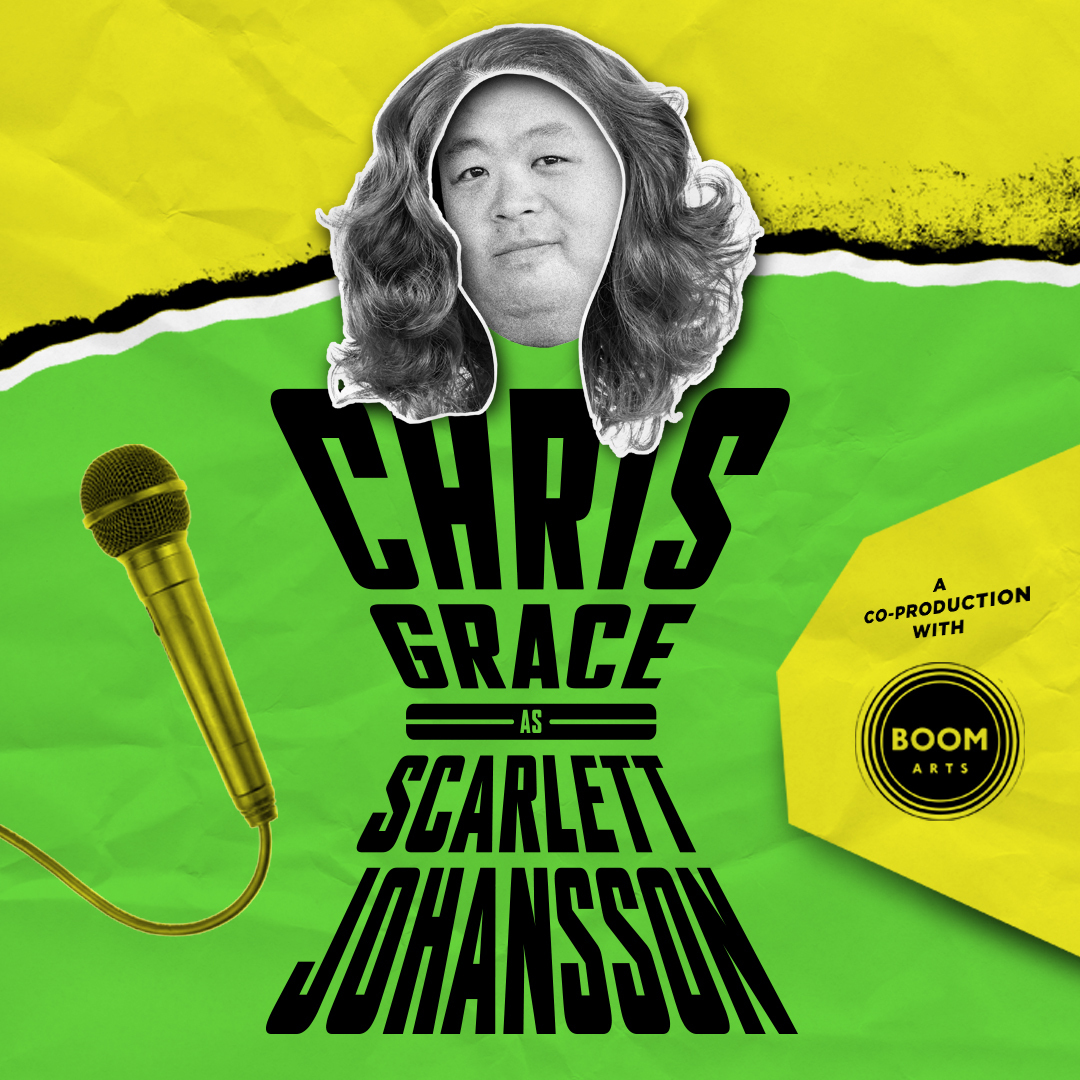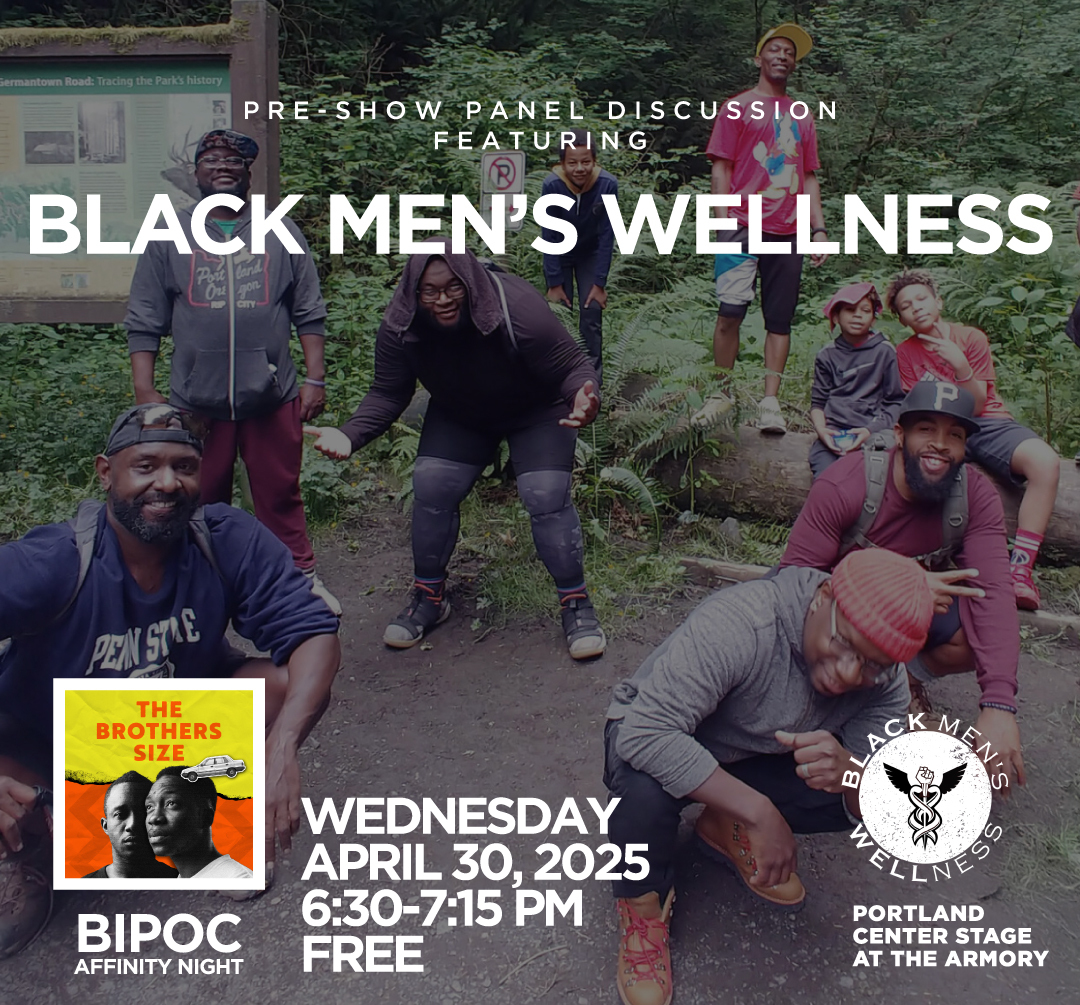An Interview with Chris Grace
PCS Literary Manager Kamilah Bush talked to Chris Grace, writer and performer of Chris Grace As Scarlett Johansson, about being a comedian and a creative chimera, why representation matters, noodles, and board games!

Chris Grace
KAMILAH BUSH: Let’s start with every playwright’s favorite question! Where did this show come from for you? What brought you to telling this particular story?
CHRIS GRACE: In 2016 when the casting was announced for Ghost In the Shell, I remember being surprised that Scarlett Johansson was picked for the role considering the original work was Japanese and the characters and settings were primarily Japanese. And I got a little spark that if she could play whoever she wanted, it would be funny for me to play her. That notion sat in the back of my mind for years… one of those projects you have that is a “I’ll get around to doing that someday” type idea. Finally in 2023 I decided to force the question by committing myself to a bunch of deadlines including Hollywood Fringe and Edinburgh Fringe, and then I had to actually put pen to paper. In the intervening years I vacillated between “is this necessary” and “is this too late” and “actually is this essential” and it seemed like racism wasn’t going away on its own so I thought I would pitch in.
K.B.: Perhaps I should have started here, actually, because I called you playwright, but you’re quite a multidisciplinary artist, which is an industry term for being multitalented. How would you describe yourself and your work?
C.G.: I think I probably fit best into the world as a “comedian” but also sometimes feel a bit like a chimera… disparate mythical parts patched together. There is something about me and what I want to say about the world that I try to pour into the mold of whatever medium I’m working in. So if I’m writing a spoken word piece, a song for a TikTok, an hourlong solo show, I’m trying to find the opportunities and limits of each form as I try to express myself. I always have a bit of a hard time answering questions like this, though, and it’s possible that I’m actually making all of this art to figure out who I actually am.
K.B.: Solo performance is such a feat and in this show you play yourself, playing Scarlett Johansson, playing yourself. How do you prepare yourself to perform this piece? Is there anything you do differently before a show like this than say a stand up set or a role in a TV show?
C.G.: My preparation for this is pretty much what any actor in a stage play would need to prepare, I make sure all of my costumes and props are in order and I think through the technical aspects of the performance. When I perform Scarlett I actually tend to get ready a bit earlier than usual because I like to be in the house as the audience enters the theater. Talking to them helps bring all of us into an extremely informal atmosphere as the show starts, because I want the play to start as casually as possible before I pile a bunch of artifice on top of it.
K.B.: There’s always talk about why “representation matters”. I know what that phrase means to me, and many others, but what does it mean to you? How does that sentiment show up in this play? (or does it?)
C.G.: This is not my original concept, but simply put, if you aren’t the majority in America, you have become an expert on how to see yourself in the works of others featuring protagonists that do not look or live like you. The first time you see yourself more accurately reflected on screen, it’s like the training wheels have come off and often there’s a burst of emotion and connectedness that comes with it. For me it was films like Longtime Companion, The Wedding Banquet, and The Joy Luck Club, and plays like M. Butterfly, Angels in America, and Yankee Dawg You Die. As human beings we just naturally think “I see that person, I can be like that person, that person up there is me” and representing more people means we can reach a lot more people with that ferocious direct connection. Also, if you’ve been the majority, it’s a good practice in empathy to relate to characters that don’t look like you. Finally from a pragmatic perspective, the more audience we can connect to our work emotionally, the more tickets we’ll sell!
K.B.: Do you know if Scarlett is aware of your show? If so, do you know how she feels about it?
C.G.: I’m about two degrees of separation removed from Scarlett so it’s possible she knows about it, but I also think at her level of fame that a show like mine is at best a small blip on her radar. She’s married to a comedian so I imagine she wouldn’t be too bothered by the show!
K.B.: Lastly, and this is how I end all interviews, what is currently bringing you joy?
C.G.: I am currently searching Los Angeles for the best hand-pulled noodles, and even restaurants that are “only” an 8 out of 10 have incredible food. I’m also enjoying a lot of board games and social games (particularly Blood on the Clocktower), so I’m putting Portlanders on notice: I will be in your city with a lot of free time on my hands, so please send me tips at about where to eat and where to play board games!
Portland Center Stage is committed to identifying & interrupting instances of racism & all forms of oppression, through the principles of inclusion, diversity, equity, & accessibility (IDEA).
















